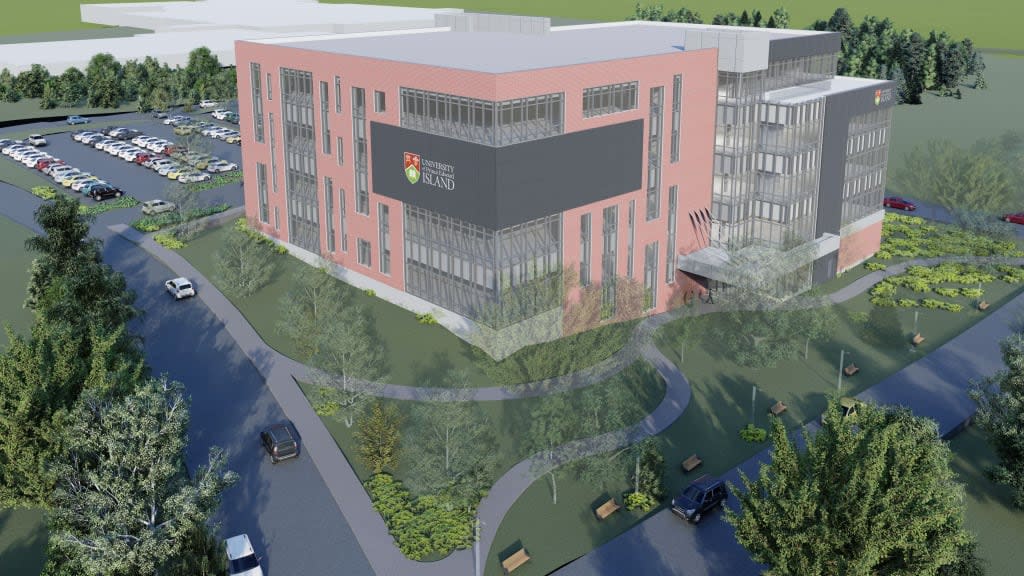Premier says no to pausing planned new medical school at UPEI, despite doctors' concerns

Premier Dennis King says the province will not pause plans to develop a medical school at the University of P.E.I., despite concerns raised by the Medical Society of P.E.I. about a need for more doctors and infrastructure.
In an interview with CBC on Tuesday, society president Dr. Krista Cassell said more time is needed to assess the plans' impact on the health-care system and "develop the pathway forward."
Opposition interim Leader Hal Perry referred to Cassell's interview in the legislature on Wednesday, when the Liberal MLA asked King, "Is this government ready to put a pause on the medical school?"
The premier replied the government would not.
The university has said it plans to launch the new medical program in fall 2025, when it hopes to enrol 20 undergraduate students. At first, the faculty would run as a satellite campus for the existing medical program at the Memorial University of Newfoundland.
The following year, UPEI hopes to offer a joint medical degree with Memorial, once its newly established program is approved by the Maritime Provinces Higher Education Commission.

Premier Dennis King responds Wednesday to questions in the P.E.I. Legislature stemming from a CBC interview with Medical Society of P.E.I. president Dr. Krista Cassell. (Legislative Assembly of P.E.I.)
Province short at least 50 doctors
A report released last month by Spindle Consulting estimated the medical school would require roughly 135 doctors to devote one in every five of their working hours to teaching at the faculty.
P.E.I. currently has a shortage of about 34 physicians, and there are more than 36,000 people on the patient registry waiting for a family doctor, according to the province's health and wellness department.
By 2033 — when enrolment in the medical school is projected to peak at 80 undergraduate and 58 post-graduate medical students — the province would need to have 40 to 50 additional doctors willing to be part-time instructors, according to Spindle Consulting's report.
King said there is still time to hire those doctors, because the first two years of the program will be mostly spent learning in classrooms. Students are not expected to become immersed in the province's health-care system until mid-2028.
"UPEI has told us, as late as yesterday, that they're in contact with 40 or 45 doctors in PEI who are wanting to work within the system," he said. "So I do think we have time to implement this."
But Perry said the premier should instead be heeding the advice of the medical society, which represents about 400 physicians and medical learners in the province.
This is our medical community we're talking about, so they have a lot of expertise in health care. Obviously they have more than the minister or more than the premier would have. — Hal Perry
"This is our medical community we're talking about, so they have a lot of expertise in health care," Perry said. "Obviously they have more than the minister or more than the premier would have, and more than anybody in the premier's office would have."
King said Cassell's interview with CBC was the first he'd heard of the medical society requesting a pause.
Health Minister Mark McLane received a letter from the society following the Spindle report that outlined concerns from doctors, including worries about the school proposal's impact on their workload, and the need to address more pressing current issues in health care and housing.
But the letter made no mention of specifically requesting a pause on the school plans.
King said he respects Dr. Cassell and the MSPEI, and thanked them for their work, despite saying no to their requested pause.
"What would the pause get us into with the situation that we find ourselves in?" King asked. "It's as if we're waiting for something magical to happen so that we could do this ... easier or more efficiently.
"I think this will end up being a very, very net positive for the health-care system in Prince Edward Island."

